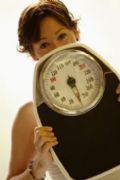|
"Eat this superfood, do this workout move, try this stress reliever—all guaranteed to change your life." The internet can be an extremely helpful yet confusing tool for information, especially when it comes to health advice. The problem is that many of these recommendations are based on myths or half-truths rather than reliable science, shared by people with an interest in health without the proper training or education. In the sea of information, how do you know what and who to believe? One trusted resource is a certified health coach who is trained to provide advice based on peer-reviewed research instead of the latest miracle pill or exercise fad. Before you jump into the next big thing, learn from the misinformation coaches commonly hear so you don't end up repeating it. "Stop eating after 6 p.m. each day.""I hear a lot about not eating past 6 p.m. for weight management," says Spark360 health coach Lisa Trimper. "Your body doesn't know exactly what time it is; what matters is what foods you are eating after 6 p.m. and how many calories you are taking in. Many people reach for salty, sweet or fatty foods as the hours tick away into the night. I don't know anyone who makes themselves a salad at 10:45 p.m., do you?" If you need an evening snack, reach for something healthy such as a piece of fruit, popcorn or a serving of trail mix. "Skinny equals healthy."Niki Campbell, founder of The Flourish Group, sees many clients who want to sleep better, have more energy and reduce stress, but believe that if they are within their target weight range, they must be healthy. "I try to emphasize the health benefits you might not see on the outside," she explains. These benefits include reduced risk of diseases such as diabetes or high blood pressure, stronger bones and reduced risk of falls. "Carbs will make you gain weight."Certified nutrition coach Ted Kallmyer says that popular diets like Atkins and keto have made people afraid to eat carbohydrates. "These diets use carb restriction as a method of calorie restriction, which is why they work," he explains. "People assume it's the lack of carbs that does the trick, when really it's because they are now eating in a calorie deficit. While carb-rich foods can be eaten quickly and it is easy to eat too much of them, the macronutrient itself isn't the culprit." In fact, carbs are your body's main source of energy, so it's important to educate yourself on your intake. Kallmyer believes that once a person learns to eat carbs in a healthier way (for example, whole grains instead of refined), they can still reach their goals. "It's all about balance," he asserts. "Detoxes are important to flush the bad stuff out of your system."If you've been feeling run down or tired, or maybe you've been feeding your body too much junk lately, you might think you're in need of a cleaning. Is a detox what you need to feel better? The answer is no. Your body is already very efficient at removing toxins naturally through the kidneys, liver, lungs and intestines. If a detox gives you an energy boost, it is probably just because you've stopped eating foods high in sugar and fat, which will naturally improve energy levels. The best way to cleanse your body is through a healthy diet and regular exercise—no lemonade concoctions or crazy colon cleanses needed. "The quantity of the food you're eating is more important than the quality."While it's true that you can survive on a fast-food diet, it's not recommended for a number of reasons. When you eat, your body releases the hormone leptin, which signals to the brain to stop eating when your stomach is full. When you indulge in junk food, the brain has a similar reaction to a drug, in which dopamine is released and you get excited for your "fix." If you eat these kinds of foods often, it becomes more difficult to get the same "fix," thus the brain convinces you to continue to eat beyond the point of fullness and you're more likely to overeat. Your body also processes junk food and nutrient-rich food differently. "If you aren't sore the next day, you didn't work hard enough.""Some people find it satisfying to be sore after a workout, like a badge of honor," says certified personal trainer Nancy Feinstein. She advises her clients that it's not necessarily bad for you to be sore, but you don't want to be sore after every workout because your body needs time to recover and adapt. If you're breathing heavy, sweating and your heart rate is elevated, Feinstein says those are signs that you're working hard. "I always ask my clients how they feel after the workout. Do they feel good about themselves? That's what is most important to me," she explains. "Natural sweeteners like honey and syrup are better for you than white sugar."The latest Dietary Guidelines for Americans recommends limiting added sugar to less than 10 percent of daily calories, which is 120 calories or 7.5 teaspoons of sugar for a 1,200-calorie diet. Too much sugar, whether it's marketed as "natural" or not, is not good for your health. There are a few types of sweeteners that offer some vitamins or minerals, but not in amounts significant enough to be a good source of nutrition. It's important to enjoy the foods you love in moderation, so don't feel like you have to swear off all sugar completely—just recognize that sugar is sugar and your body treats it all in the same way. When seeking health advice, make sure you're using trusted sources of information. Do your homework and don't take the advice of strangers on the internet as a substitute for guidance from a qualified professional. |




.jpg)



